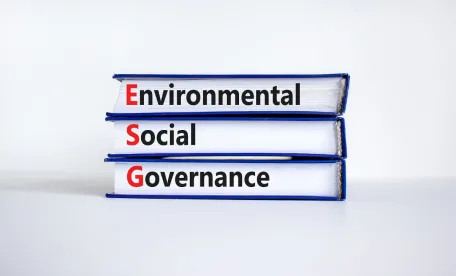ESG IN LITIGATION SERIES: PART TWO OF EIGHT
WHAT YOU NEED TO KNOW IN A MINUTE OR LESS
Social factors, the “S” in “ESG,” consider how a business handles its relationships with suppliers, contractors, employees, and communities. These factors are becoming the target of class action plaintiffs’ lawyers, who are using companies’ statements about their environmental, fair trade, labor, and diversity practices and policies as the alleged basis for shareholder derivative and other class actions. Companies that have experienced an event that has impacted its surrounding community can also find themselves defending a class action lawsuit.
In a minute or less, here are two trends in the evolving landscape of ESG class actions.
Class-Action Plaintiffs' Lawyers Diversify Their Approach
The current social justice zeitgeist has increased market and shareholder attention to companies’ commitment to diversity, equality, and inclusion (DEI) practices. Companies without diverse boards and management teams have been targeted with shareholder derivative suits. Companies’ own public statements have formed the basis of these lawsuits, such as “actively seeks women and minority candidates” or “celebrates diversity and prides itself on its diverse staff.” Court to date have generally dismissed these claims.
To mitigate against the risk of facing a class action based on social factors, companies should consider:
-
Including prominent disclaimers with appropriate advertising, such as using the phrase “good faith efforts” when discussing achieving diversity goals, stating clearly that efforts to increase diversity are based on outreach, recruitment, and other DEI initiatives, rather than a quota.
-
Basing diversity goals on a workforce and availability analysis that shows whether there is under-representation in certain job groups compared to availability in the recruitment area.
-
Using aspirational language rather than factual statements when appropriate (e.g., “goal” rather than “promise”).
-
Conducting annual reviews of compensation and hiring systems through a privileged expert engaged by counsel.
-
Performing a pay equity review before publicly claiming pay equity.
Event-Based Claims
Class actions driven by a single ESG-related event are also increasing in number. These lawsuits typically follow an event that negatively impacts a company’s stock price. If the company was slow to disclose the event to shareholders, shareholders may sue and claim securities fraud. If the company quickly disclosed the event, shareholders may still sue and allege the company failed to disclose vulnerabilities. These cases often ride the coattails of a government investigation, investigative journalism, or heavy press coverage.
Examples include a social media company alleged to have collected location and other data, even when users disabled data tracking; a videoconferencing provider alleged to have allowed unwelcome participants to join calls; and numerous health care industry companies reaching global settlements related to opioid claims.
Companies should consider regularly evaluating the risks of a major ESG event as part of an overall enterprise risk management (ERM) program in an effort to identify and adopt improved mechanisms to prevent the events that have already given rise to litigation. While it may seem counterintuitive, increased mandatory and uniform ESG disclosures could provide shelter to companies facing securities class actions based on certain types of ESG disclosures, by providing information to shareholders and aiding in the defense that all applicable regulations were followed.






 />i
/>i


